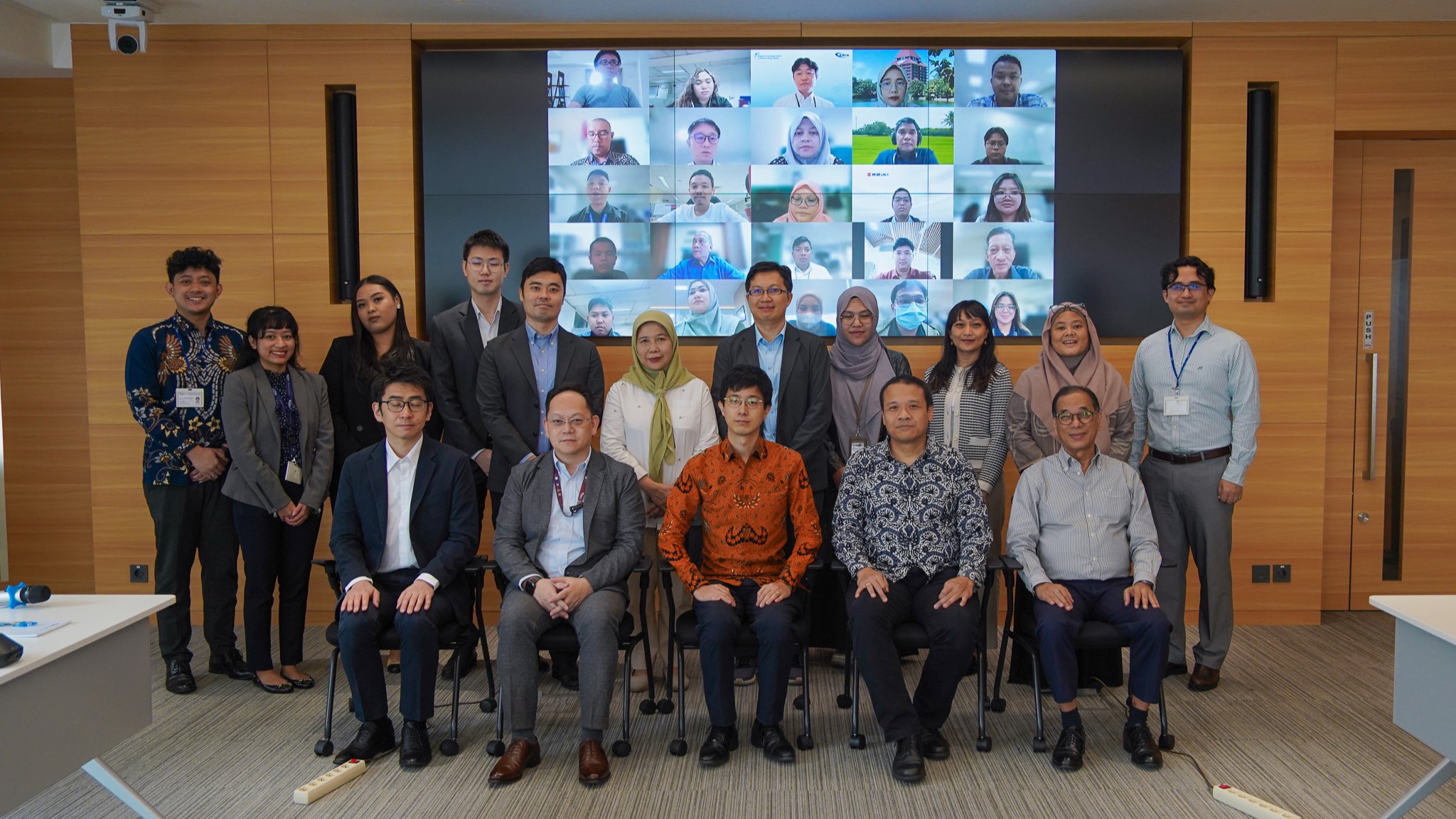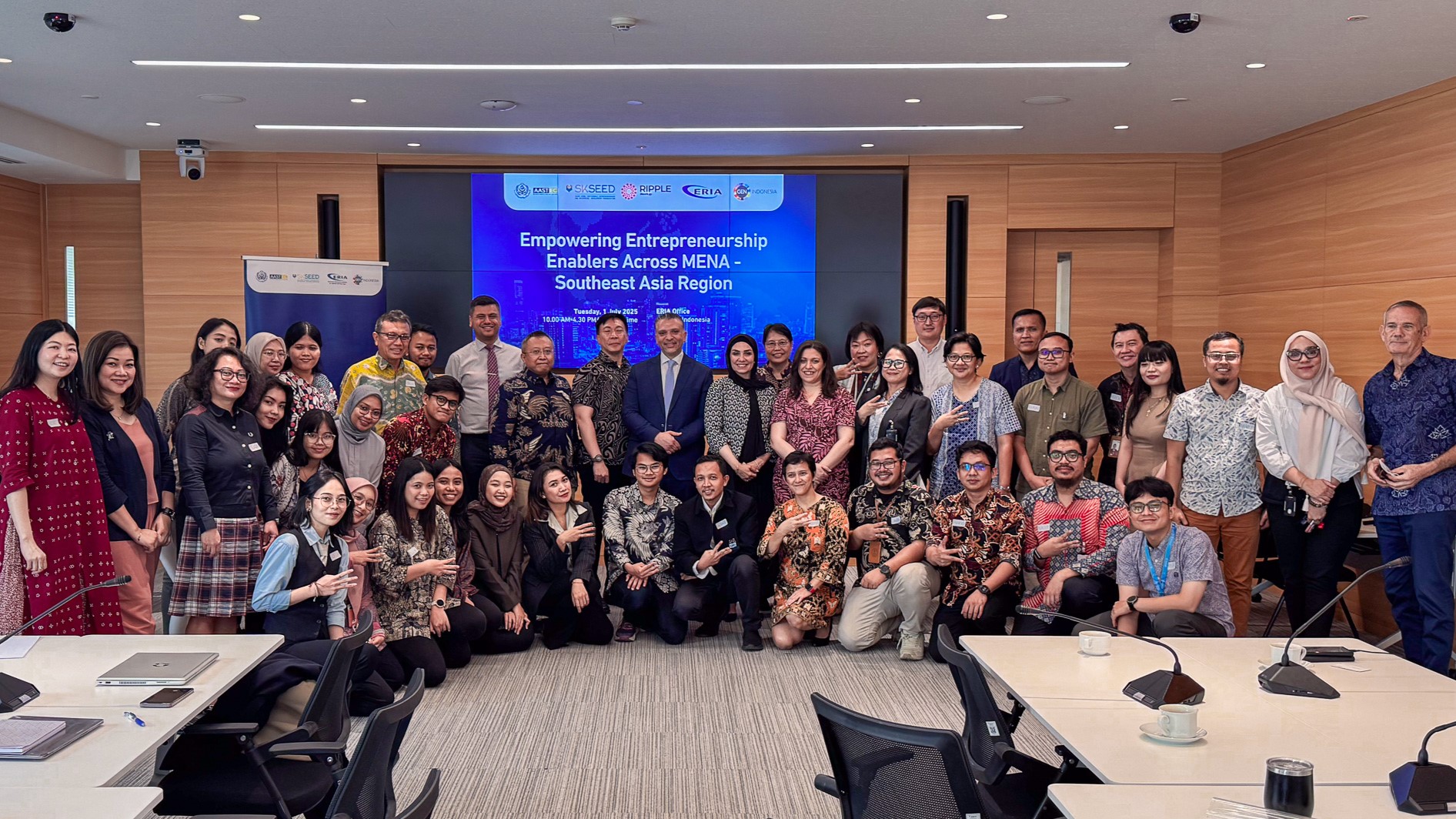Regional Governments Key to Tackling Climate Change in Indonesia
Date:
18 January 2022Category:
OpinionsTopics:
Climate ChangeShare Article:
Print Article:
By Ms Citra Endah Nur Setyawati, Research Associate and Dr Venkatachalam Anbumozhi, Director of Research Strategy and Innovation, Economic Research Institute for ASEAN and East Asia (ERIA): Every year at this time, Indonesia’s people feel the pressure of climate change as floods inundate crops, villages and cities from Papua to Sumatra. Climate change is already underway, causing havoc to people and ecosystems around the world. The Intergovernmental Panel on Climate Change (IPCC) report (2021) confirms that the risks will increase if the global average surface temperature rises by 2°C, and particularly developing countries like Indonesia will be more vulnerable to the impact of climate change.
According to the IPCC 5th Assessment Report (2014) and Indonesian Ministry of Maritime Affairs and Fisheries (2020), climate change and unpredictable weather have resulted in sea level rise which is decreasing marine fish catches by 40–60%, as well as worsening socioeconomic conditions in around 10,000 coastal villages in Indonesia. In tackling climate change and avoiding tipping points of global climatic disasters, controlling carbon emissions from the global energy system, which is currently heavily reliant on fossil fuels, is critical.
In recent years, the energy transition has become an intensive topic of discussion in Indonesia. According to the Indonesia Nationally Determined Contribution (NDC) in 2021, the country aims to cut emissions by 29% by 2030 if it relies solely on its own resources to finance decarbonization, or 41% with international support. However, as the world’s largest island country, Indonesia consists of 34 provinces and multilayered governments. The governance system is decentralized and requires the participation of the regional governments in the clean energy transition processes. Therefore, it is particularly important to support the efforts not only from central government but also regional governments.
Several provinces have made great efforts to transition to renewable energy. One example is the Province of Bali, which is proposing the development and use of clean energy beginning in 2020. In 2019, Bali Provincial Government issued two regulations to realize a clean energy supply by 2022: the ‘Bali Clean Energy’ and the ‘Use of Battery-Based Electric Motorized Vehicles’ acts. As a result, PT. PERTAMINA, the state-owned oil and gas company, is interested in strategic cooperation with the regional government of Bali to increase the clean energy mix in the province by developing an electric vehicle ecosystem in tourist areas, constructing solar power plants, and waste power plants.
In addition, the government of Central Java has also committed to accelerating the transition by encouraging all sectors in Central Java to develop solar rooftops as they declared ‘Jawa Tengah Solar Province’ in 2019. The Governor of Central Java also issued a Circular Letter in 2019 promoting the construction of solar rooftops to all regional institutions and several private companies in Central Java to build solar rooftops on their facilities. As a result, the biggest solar rooftops in Central Java of 2.919 kWp were installed in 2020 in Klaten Regency.
In Eastern Indonesia, the Governor of East Nusa Tenggara also fully supports the deployment of renewables in their region as they own abundant potential sources of renewable energy. Therefore, several projects on renewable energy were developed with the help of the public and private sectors such as Sumba Iconic Island and Flores Geothermal Island.
The examples above indicates that several regional governments making proactive efforts in support of national plans and their role is critical in hastening the adoption of renewable energy in Indonesia. The efforts conducted by regional governments depict high-level enthusiasm and commitment to being part of the solutions. However, the situation faces challenges such as financial barriers to establishing renewable technology, limited policy frameworks, and lack of awareness and understanding of regional governments on how critical it is to actualize the transition to renewable energy in their regions.
In fact, the central government has not paid attention yet to regional governments' actions in terms of support for accelerating the transition. If more regional governments have the will and take action to support the transition in their regions, more renewable energy will be deployed, and the transition can take place towards net zero.
According to ERIA research in 2019, hydro, geothermal, biomass, and other renewables such as solar and wind are among Indonesia's plentiful non-fossil energy resources, with a renewable energy potential of roughly 441.7 GW. But only 2%, or around 9 GW, has been used. And this is despite the fact that solar photovoltaic (PV) technology is easy to implement in all regions in Indonesia due to the country’s equatorial position. According to the Indonesian Ministry of Energy and Mineral Resources (MEMR; 2021), the total potential of solar energy in Indonesia is 207 GW which is spread evenly throughout the country’s regions. Additionally, MEMR (2021) also reports that solar PV investment costs have decreased by 80% in the past decade.
These circumstances should be used by the central government to invite all regional governments to promote action to deploy more renewable energy, with particular prioritization for solar energy in their regions. With the cooperation of the regional governments, the deployment of renewable energy at the regional level will be a success. Furthermore, the application of solar PV technology will be significant if the regional governments fully support its implementation, including providing incentives for private sector involvement, preparing regulations, and boosting public awareness to assist its development. The country's success in promoting the energy transition at the regional level hinges on the success of regional leaders.
To enable the energy transition in Indonesia, cooperation between governments at all levels, including regional, local, and key ministries of central governments, as well as the contributions of the private sector and communities is crucial. The energy transition process will be accelerated if other provinces in Indonesia share the same enthusiasm as the other provinces stated above for increasing renewable energy capacity in their regions. Although the central government has the lead role in driving the transition, regional governments must be involved to speed up the process by installing more renewable energy capacity in the regions and maximizing its potential across the country. Regional governments will undoubtedly be required to play a role in the battle against climate change in order to speed energy transition.
This opinion piece was written by ERIA's Research Assocatie and Director of Research Strategy and Innovation and has been published in The Manila Times and The Jakarta Post Click here to subscribe to the monthly newsletter.
Disclaimer: The views expressed are purely those of the authors and may not in any circumstances be regarded as stating an official position of the Economic Research Institute for ASEAN and East Asia.







